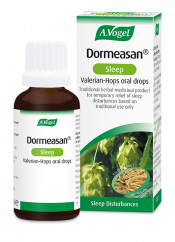Are you digitally sleep deprived?
I am surgically attached to my iPad, taking it and my Kindle regularly to bed with me; a friend of mine keeps her mobile on all night so she can check throughout the night ‘if anyone has needed to contact her’; and my younger brother (he is of the generation that do not even own landlines, or clocks) says he has to keep his iPhone next to his bed or, otherwise, how would he know what time it is?
So I was not surprised to read that a recent online survey conducted by the University of Hertfordshire found that 78% of participants use devices such as tablets or smartphones in the two hours before bed, and found that this number has significantly increased from the 57% using them in the same study done just one year ago.
How can electronic devices affect sleep?
These devices are known to emit a particular wavelength of blue light which effectively suppresses the body’s production of melatonin, the hormone that makes us feel sleepy. So it is also not surprising to see that the survey also found that the amount of participants who would be classified as ‘sleep deprived‘ has also risen significantly, from 39% in 2013 to 59% in this year’s survey. The survey classified ‘sleep deprived’ as getting 7 hours sleep, or less, per night.
Why is blue light such a problem?
Basically, we have specialist cells in our eyes that detect light levels, and use this information not for visual purposes, but to feed information straight to the group of cells in the brain called the suprachiasmatic nuclei – or ‘master clock’ in layman’s terms. The master clock then regulates the body’s biorhythms based on this information. It effectively tells your body what time it is.
The chief mechanism the master clock regulates is the sleep/wake cycles, through melatonin production, but many other body systems also operate on a 24 hour cycle (blood pressure and glucose levels being two examples). The cells in the eyes that do this job are most responsive to blue light – the type emitted from computers, TVs, indoor light bulbs, e-readers, smartphones and tablets – in short, all our modern devices. And when we use them in the evening we are convincing our brain that it is still daylight, and so suppressing the production of sleep-inducing hormones.
Light pollution is nothing new, of course. Both televisions and electricity have been around a long time. But the reason we should be more concerned and aware of our habits now is twofold: firstly, we hold the average tablet or smartphone so close to our eyes; and secondly, constant accessibility to texts, the Internet, emails etc. keeps our nervous system in a hyper alert state.
So we are creating two problems: one in delaying the production of our natural sleep chemicals, and another in creating havoc with our poor nerves, so that even if we were producing melatonin properly, the amount of adrenaline rushing around our bodies makes it impossible to ‘switch off’ at night. No wonder we are all tired and stressed!
What can we do?
So what can we 21st century beings do about this? Well, the first thing is to simply turn off your devices as early as possible. Experts say two hours before bed is ideal. Of course, this is easier said than done – I will make it a goal of mine and report back (as soon as I have finished writing this!).
Dim all indoor lighting in the evening where possible, and make your bedroom as dark as possible. In fact, it is advised to ‘digitally detox’ your bedroom and ban all devices, including televisions and phones – buy an old fashioned alarm clock instead!
For serious insomniacs, you can buy blue light blocking goggles to wear indoors, and that can be a good option for watching TV or computer use late in the day.
And lastly, the body was designed to get daylight from outdoors during the day, so if you work indoors bear this in mind – this is also important for regulating the ‘master clock’. As little as half an hour in outdoor light can make a big difference.








